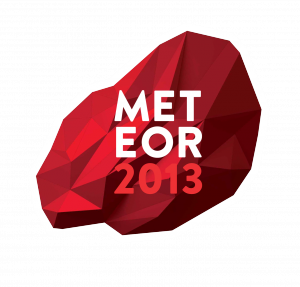METEOR 2013: STIGMA – CASTING THE OBVIOUS
 |
DEBATE
Røkeriet Bar at USF Verftet, Wednesday October 23rd 2013 at 15:00
In the past few years, artists and cultural agents have started to claim a place in the public debate about social, environmental and political issues, arguing that artists have an active role to play in society and that artistic creation offers a valid source of knowledge and experience. Thematic approaches to artistic creation have, once again, come to the foreground in contemporary performing arts and moulded a new paradigm that sometimes is being referred to as the new reality trend in the arts. Evident examples are, for instance, much of the politically engaged theatre that is being made today or the notably surge of documentary theatre.
The network HOUSE on FIRE includes ten European theatres and festivals that, in recent years, have shown an active interest or even have played a central role in the development of this new paradigm. Indeed, the partners of HOUSE on FIRE pursue an international programming and co-production policy, based on the conviction that the arts have an essential role to play both in the communication between people and in the development of thought and debate about problems and challenges that our societies and the world are facing. (www.houseonfire.eu)
The topic for thematic events in The House on Fire network this season is «The individual and the common». STIGMA – Casting the Obvious is a collaboration between BIT Teatergarasjen/METEOR and the feminist magazine FETT.
Why do we, as an art audience, not hesitate to accept a short blond man and a tall redhead as brothers on a traditional theatre stage, whereas actors of a different colour break the so-called illusion in a similar casting? «Blame it on the drama», society tells us. «There has to be up-to-date plays written for us to cast in a different manner» the theatre reply. Whose responsibility is it to change the social stigma at hand? What is needed to challenge the underlying agreement of what is believable on stage?
The first days after the turn of the Norwegian election towards a conservative government the 9th of September this year, one of the most shared articles in social media was the British newspaper The Independent´s link between Fremskrittspartiet (The Populist Progress Party) and the man convicted for the crimes of 22.07.2011, Anders Behring Breivik, stating the ideological similarities between the two, as well as pinpointing the fact that the mass murderer was a member of the party as a youth. Norway has been governed by the labour party since WWII, only interrupted by short periods of conservative rule. This is the first election where the populist party is likely to form a government together with the conservative Høyre, a party that has earlier formed coalition governments leaning towards the centre of the political landscape. Although the Populist Progress Party represents certain strategies that is difficult to combine with a humanistic worldview, branding them as right wing extremist plays on a stigma more than matters of fact compared to existing right wing parties in Europe.
A couple of months earlier, a Norwegian comedian got blazing critique in the media after portraying the American talk show host Oprah Winfrey as a blackface minstrel artist, reminiscent of the entertainment culture in the United States in the decades around the emancipation from slavery in the 1860s. The African-American comedian Dave Chappelle enjoys portraying white news anchors, but is not necessarily required to relate to the issues history adds to context. What defines which minority groups should suffer from social stigma at a certain time? What decides who gets to partake in the big pool of «normal»?
The Canadian sociologist Erving Goffman used the theatre as a metaphor for the importance of human, social and political action, made famous in The Presentation of Self in Everyday Life published in 1959. He argued that all actions are social performances we make to maintain desired impressions of ourselves to others. The only time one can truly be oneself is behind the scenes when no one is watching. Four years later, he published his research on what he coined ´social stigma´, which examines how people manage these performances in situations where their identities depart from the approved standards of appearance or behaviour. The most common strategy is through concealment.
This all relates to the range of which cultural norms are regarded as common for the greater society, where one risks discontentment in deviating from the standard. Goffman counts several forms of social stigma separated into three groups: Overt or external deformations (such as scars, physical manifestations of anorexia nervosa, leprosy, or of a physical disability or social disability such as obesity), deviations in personal traits (including mental illness, drug addiction, alcoholism and criminal background) and tribal stigmas, imagined or real, of ethnic group, nationality or of religion that is deemed to be a deviation from the prevailing normativity. In light of historical events since 1963 when the research was published, we can justify including sexual orientation, gender identity, education, social class and ideology as parameters for social stigma measurement.
We want to invite you to a debate over these topics, to dive into them over a cup of coffee. This is not an attempt to draw any further lines regarding what is right and what is wrong, only what is. Follow BIT Teatergarasjen and FETT in social media for updates on who gets selected to partake in the panel. We hope to see you there.
PRACTICAL INFORMATION:
The seminar is open/free of charge, and will be conducted in English. For more information about House on Fire, visit www.houseonfire.eu.
